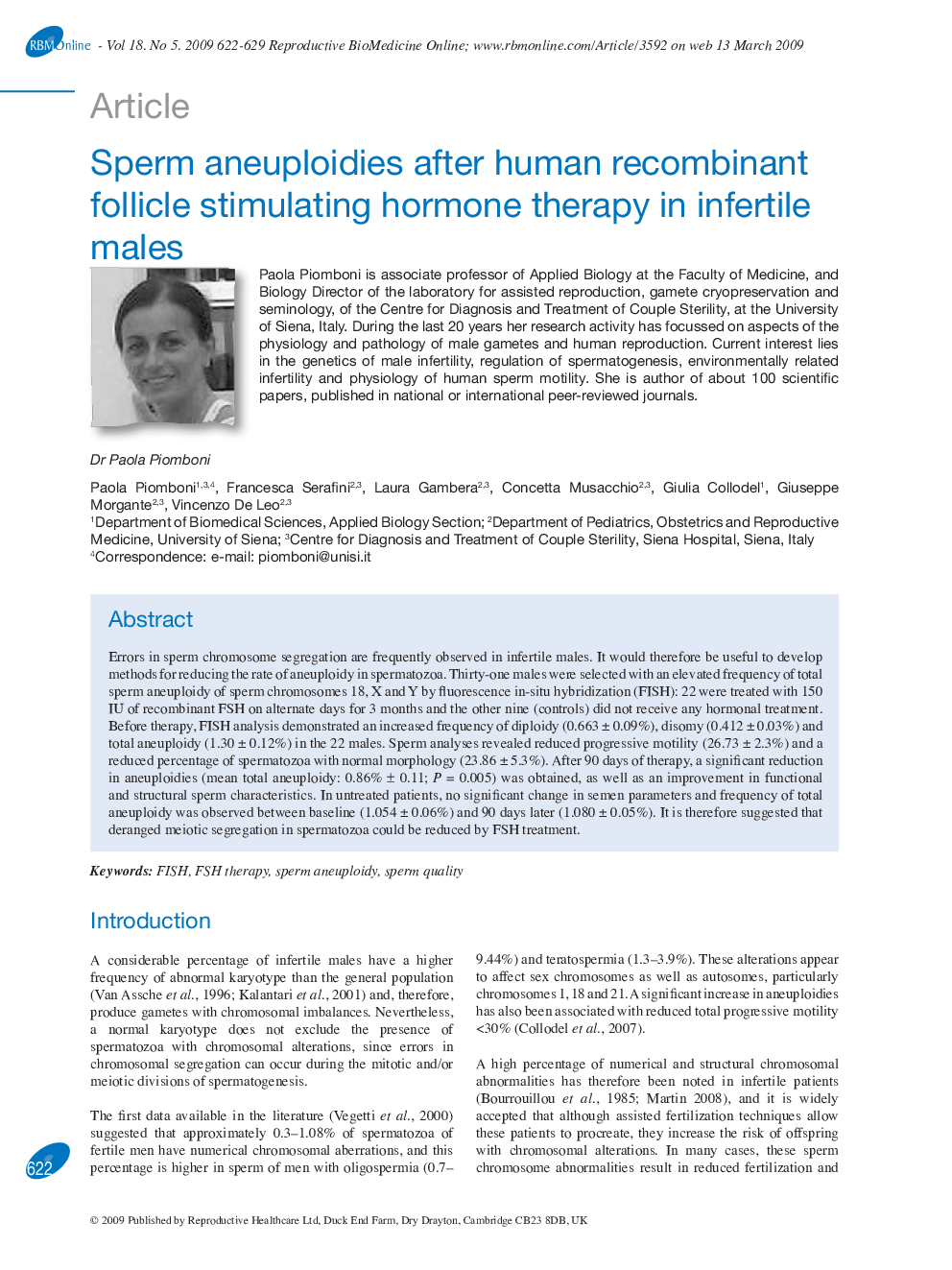| Article ID | Journal | Published Year | Pages | File Type |
|---|---|---|---|---|
| 3971309 | Reproductive BioMedicine Online | 2009 | 8 Pages |
Errors in sperm chromosome segregation are frequently observed in infertile males. It would therefore be useful to develop methods for reducing the rate of aneuploidy in spermatozoa. Thirty-one males were selected with an elevated frequency of total sperm aneuploidy of sperm chromosomes 18, X and Y by fluorescence in-situ hybridization (FISH): 22 were treated with 150 IU of recombinant FSH on alternate days for 3 months and the other nine (controls) did not receive any hormonal treatment. Before therapy, FISH analysis demonstrated an increased frequency of diploidy (0.663 ± 0.09%), disomy (0.412 ± 0.03%) and total aneuploidy (1.30 ± 0.12%) in the 22 males. Sperm analyses revealed reduced progressive motility (26.73 ± 2.3%) and a reduced percentage of spermatozoa with normal morphology (23.86 ± 5.3%). After 90 days of therapy, a significant reduction in aneuploidies (mean total aneuploidy: 0.86% ± 0.11; P = 0.005) was obtained, as well as an improvement in functional and structural sperm characteristics. In untreated patients, no significant change in semen parameters and frequency of total aneuploidy was observed between baseline (1.054 ± 0.06%) and 90 days later (1.080 ± 0.05%). It is therefore suggested that deranged meiotic segregation in spermatozoa could be reduced by FSH treatment.
